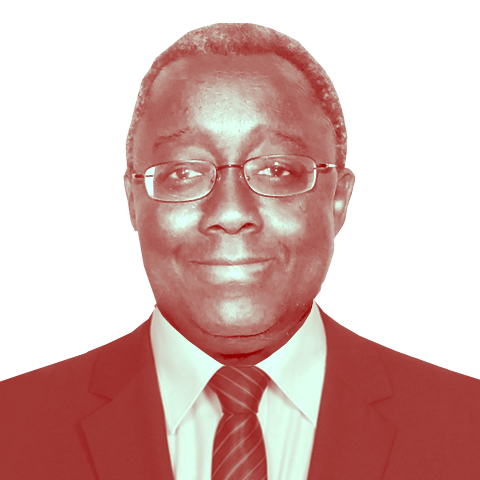
Swiss response to Covid-19 and other unarmed conflicts
The pandemic should lead us to question how we define conflicts. Unarmed conflicts and threats of unarmed conflicts should be upgraded in the legal and constitutional framework, argues Rudolph Thomson, a risk and management consultant.
We are at war with a virus and its mutating variants. It is an unarmed conflict against an invisible enemy, but it has already cost more lives than any armed conflict in the military history of Switzerland. In fact, it was another unarmed conflict, the unfairly named Spanish Flu of 1918, which claimed 25,000 Swiss lives that has cost us more dearly than any armed conflicts in the history of the Confederation.
Rudolph Thomson is the founder and managing director of VaudRisk, a risk management consulting company with focus areas in early warning & problem recognition, and remedial management. VaudRisk is registered and based in Montreux, Vaud, Switzerland.
So, what happened to the cry in the spring of 2020 for a ‘war footing’ to deal with the ‘greatest national threat since the Second World War’?
I hope that you will agree that the national response, however conscientious, has not measured up to the ferocity of the virus attack. It is clearly not a blueprint for likely future outbreaks for it lacks the urgency and fight that an armed conflict would have engendered.
Not many will doubt the sincerity and commitment of the federal and cantonal authorities to lead the fight against the spread of Covid-19 in the country.
But how many would want this same type of leadership if it were in the face of an armed conflict. Covid-19 has inflicted a staggering death toll on the population, infection, and hospitalization rates; less measurable, but no less painful is the toll on morale and mental health in the population.
I humbly submit that the response thus far, however valiant, is undermined by our anachronistic attitude to, and definition of ‘war’ which is largely limited to armed conflicts; unarmed conflicts are largely ignored in this definition. And this must change.
Similarly, the centuries-old definition of ‘military’ requires updating beyond soldiers and armed forces to include a competent body to fight unarmed conflicts such as are presented by viruses and may well become cyber on a larger scale by the end of this century. It is time for a new approach.
Let’s begin by liberating our thinking from outdated historical definitions of war and military. That in turn will inform the manner in which we prepare and respond to conflicts in the 21st century world.
It would be well worth considering elevating unarmed conflicts and threats of unarmed conflicts to the same level in the legal and constitutional framework as armed conflicts. Thus, the Federal Assembly’s authority to appoint a commanding general of the army in case of armed conflict could also include the option to appoint a scientific and medical doctor-general to fight virus attacks and other unarmed conflicts.
Now is the time to act in the full spirit of the national motto, ‘One for all. All for one’. Alternating responsibility between federal and cantonal governments must not be allowed to continue in dealing with this ‘war’. It reflects an ambivalence of authority between the Federal government and the Cantons. Shifting responsibility and related costs to the cantons, as has been implemented so far, is short-sighted. In the end, it could become more expensive and disruptive and delay the road to recovery. In this system, cantons may be constrained to pursue their own narrow interests which may not serve the country as a whole. This could eventually lead to the federal government to intervene at a later stage and duplicate costs. Besides, it is the antithesis of solidarity. Over time all taxpayers, individual and corporates will have to share the costs.
We should muster up a strong, consistent response on ‘a war-footing’ led by a commanding doctor-general and a scientific-medical corps in ‘military’ style and spirit to protect and defend the population in cases of unarmed conflicts. Let’s also mention the growing risks of cyberattacks. In March 2018, the SonntagsZeitung, reported that 15,000 Swiss government employees, including top officials had their email addresses and passwords leaked and traded online. This is just one example among many.
Such an initiative would not only help our combat against these rapidly growing new threats but would also align with the Swiss tradition of innovative, practical and anticipatory solutions to deal with clear and recurring dangers to the nation.
The views expressed in this article are solely those of the author, and do not necessarily reflect the views of SWI swissinfo.ch.
SWI swissinfo.ch publishes op-ed articles by contributors writing on a wide range of topics – Swiss issues or those that impact Switzerland. The selection of articles presents a diversity of opinions designed to enrich the debate on the issues discussed. If you would like to submit an idea for an opinion piece, please e-mail english@swissinfo.ch.

More
Coronavirus: the situation in Switzerland

In compliance with the JTI standards
More: SWI swissinfo.ch certified by the Journalism Trust Initiative


























You can find an overview of ongoing debates with our journalists here . Please join us!
If you want to start a conversation about a topic raised in this article or want to report factual errors, email us at english@swissinfo.ch.